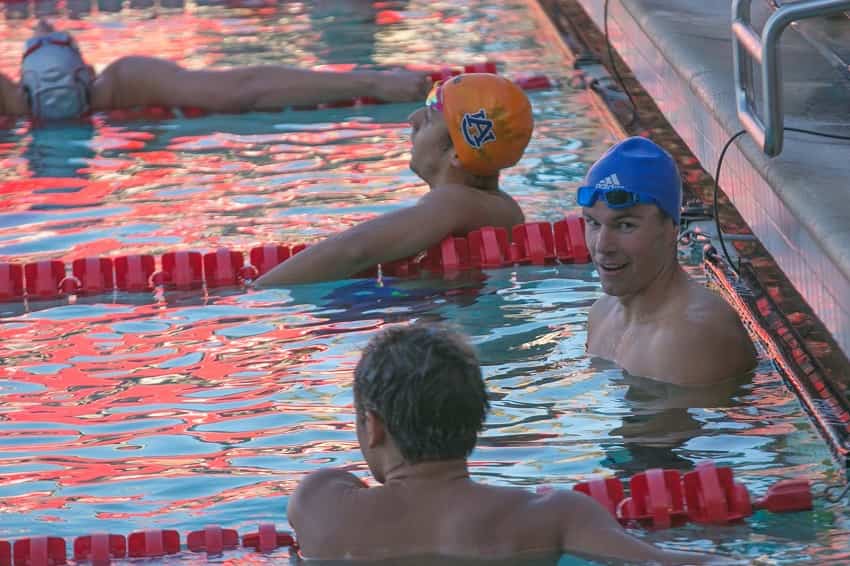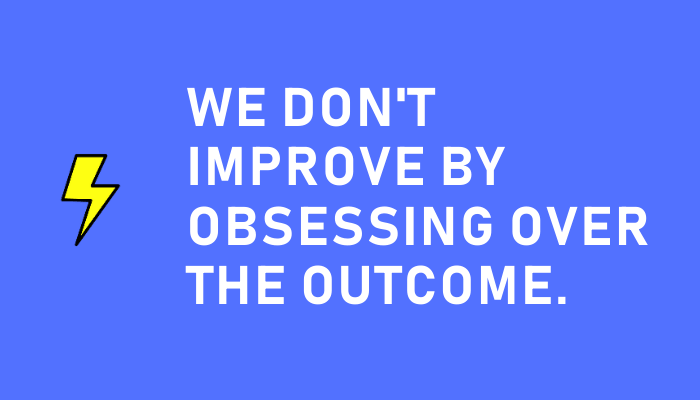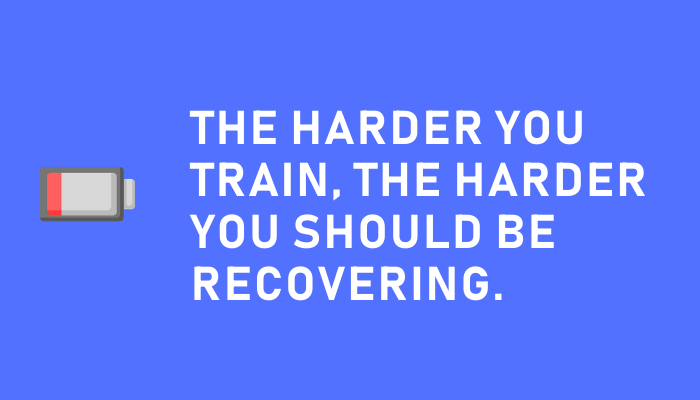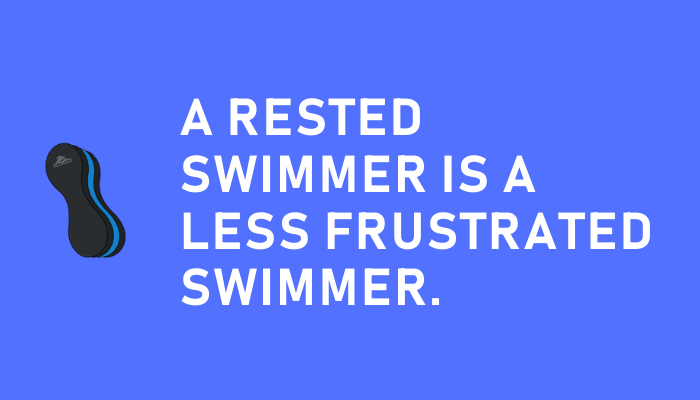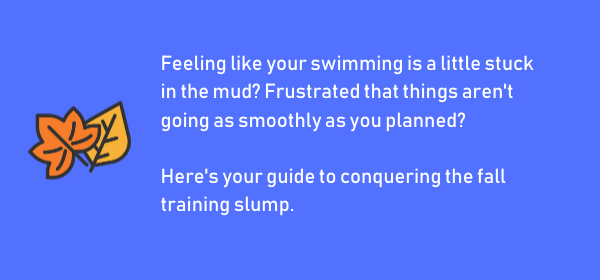
The days are getting shorter, the homework is stacking up, and the promise of championship season and the PB’s that come with it are so far away it might as well be on Mars.
At this time of year, when the training is usually at its peak, swimmers tend to lapse into frustration.
It’s the autumn training slump, where those early mornings feel particularly struggley, you are perpetually tired, and you find yourself frustrated and apathetic when it comes to those crucial main sets.
It’s understandable.
You are tired. Your coach is tired. Your parents are tired, too.
Here is how to navigate the fall training slump.
1. Remind yourself that feeling a little morose during hard training is normal.
What you are experiencing isn’t super weird…
Hard training makes us cranky.
This seems obvious, but when researchers tracked the mood of elite athletes over the course of a season, grumpiness, depression and frustration were at their worst during stretches of peak training.
A not-so-obvious reality of training like a high-performance athlete is that the harder you train, the more your mood profile is going to sink.
So yup, while working harder than ever won’t always be a joy for you (or for the people in your life), feeling a little down and frustrated is typical of training at peak volume.
2. Set training goals.
One of the frustrations of the fall training block is that our big goals are far, far away.
So far off, that it can almost make us feel like we are wasting our time at the pool.
You can get the same sense of urgency and focus that the big goals provide by using training goals.
What are some things you want to work on at the pool this week?
Not breathing into the walls? Working on your catch? Improving your distance per stroke?
Each night sit down and write out a couple goals for your next practice.
3. Take it one lap at a time.
We live in an era that glorifies instant-gratification and immediate results.
Being patient and staying present conflicts with this reality.
Which means we are more prone to getting frustrated and abandoning the process than ever before.
Which means you need to double-down on a process-based mindset.
We crush our goals by focusing on the step in front of us.
Not the step behind us, nor the step five-weeks ahead.
When you catch yourself getting frustrated at practice, bring your concentration back to your technique and effort.
“Being present” isn’t just a tacky slogan to live by—it’s a way to avoid the needless stress and frustration that comes from looking too far ahead.
4. Mark progressions.
Frustration is usually a byproduct of a lack of progress.
We have the sense that we are banging our head against the wall over and over again, swimming in place like one of those Endless pools, the wall just out of our reach, never getting any closer to our goals.
If you are spending 20ish hours a week at the pool, and have the idea in your head that you aren’t improving, it’s no wonder you are ready to throw your kick-board across the pool deck in frustration.
But the truth is this:
If you are going to the pool and doing the work, you are getting better.
Which is why it is so important to track and monitor the progressions you are making.
Log your effort after each practice. Rate your attendance for the week. Compete with your training personal bests.
Reminding yourself regularly of the progressions that are happening is critical for navigating frustrated stretches of training and maintaining self-confidence and motivation.
There are tons of progressions that are available to you that will motivate you and encourage you to push through.
You just need to be willing to sit down for, oh, I don’t know, about two minutes a day to track ‘em.
5. Rest like a champion.
This one is going to fall into the “I know, I know” category again, but it’s silly how much of an impact proper rest can have on a frustrated swimmer.
The harder things are in the pool, the more attention you need to pay to your recovery.
This means…
- Managing your schedule.
- Make it a point to have downtime, which is more than sitting on the couch watching Netflix while scrolling through your social feeds.
- Unplug from the digital universe.
- Go for a walk outside and catch some nature.
- Take a nap.
- Start using a gratitude journal.
- Go to bed an hour earlier.
And when you are less frustrated, you are more likely to push through tough sets and stay focused when things get challenging.
There are plenty of things you can do to give your brain and body a break from the rigors and stress of training and daily life, but it’s on you to find time for the downtime.
The Next Step
The autumn training slumps happen to us all.
But you don’t need to let it derail you from the work necessary to accomplish your goals this season.
So what will you do to combat the frustration?
Set training goals?
Work on getting more sleep each night?
Remind yourself that being a chlorinated cranky-pants is *normal* when utterly demolishing big weeks of training?
Let me know, either by reaching out on Twitter, or via my weekly newsletter for competitive swimmers and coaches (sign up here—it’s free, and you will get some bonus swim practices as a little thank-you gift for signing up).

